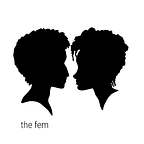Albums for a Second Adolescence by Anna Szilagyi
While culturally we agree that adolescence ends when our teenage years do, the feelings associated with that time don’t leave us completely. Post-college graduation, the start of a new job, or the end of a significant relationship can make what we consider “adulthood” feel more like our awkward teenage years. We expect teens to feel things deeply, and the angsty slamming of doors is chalked up to puberty and raging hormones. But once you hit your early twenties, you feel pressured to at least appear that you have things figured out.
Those of us in the midst of this era know that having it together is just that–an appearance. In reality, the transition to adulthood does mirror the uncertainty of early teenage years. Mitski Miyawaki introduces the idea of a second adolescence with the title of her new album, “Puberty 2,” released June 17, 2016 on Dead Oceans. Through her precise, addictive melodies, Mitski explores the reality underneath this pressure to seem put together. Mitski, along with other young artists, offer their nuanced experiences of early adulthood through thoughtful arrangements, leaving listeners with anthems to lean on in the struggle of growing up.
The Internet, Ego Death
The Internet’s vocalist, Sydney Bennett–better known as Syd–is in the midst of early adulthood at twenty-four. In “Under Control,” she sings directly to her band, as she mentions in their NPR Tiny Desk concert: “I woke up impatient and anxious/ chasing dreams in my sleep.” Syd lives in the in-between–she mentions in “Get Away” that she still drives her old car and lives at home, but in the same track, she sings about a “life of luxury” with the confidence of a full-blown adult with a swanky apartment.
In a 2012 interview with LA Weekly, Syd said she came out in the band’s music video for “Cocaine” partly because of the lack of openly gay female artists in music. Four and a half years and a Grammy nomination later, the Internet remind us we can find our own versions of success without having it all figured out.
Alvvays: Self Titled
Toronto-based band Alvvays take the nostalgic, syrupy feeling of summer and bottles it into dreamy indie-pop. At thirteen or twenty-one, you can drink it by the gallon and not feel sick. “Party Police” paints a romantic relationship splattered with teenage antics, like tagging both your initials in permanent marker on a suburban overpass. The chorus rings, “You don’t have to leave,/ you could just stay here with me/ forget all the party police,/ we can find comfort in debauchery.”
Themes of companionship weave throughout, conjuring images of old-school teen movies or grainy home videos. In the ever-catchy “Archie, Marry Me,” vocalist Molly Rankin lulls in singsongy melodies, capturing the liminality we all know so well: “Too late to go out/ too young to stay in/ they’re talking about/ us living in sin.”
Mitski: Puberty 2
On Puberty 2, Mitski writes on broad subjects through tiny lenses–happiness becomes a fleeting guest in her house, and a complex love relationship becomes a series of snapshots: “holding hands under a table” and “kisses like pink cotton candy” (“A Loving Feeling”). In “My Body’s Made of Crushed Little Stars,” she wails, “I better ace that interview,” something many of us have cried either internally in public or aloud while alone in our rooms.
In the final track, “A Burning Hill,” Mitski ends on a small, hopeful note: “So today I will wear my white button-down/ I can at least be neat…/ And I’ll love the littler things.” Mitski affirms that finding happiness in the mundane is not admitting defeat, but a small and valid victory.
Wet: Don’t You
Wet weaves together elements of R&B, electronica, and pure pop on their debut full-length. Vocalist Kelly Zutrau’s lyrics embrace the ambiguity of relationships–in “You’re the Best,” she admits, “I still feel lonely/ lonely when you hold me/ but baby, you’re the best/ we’ll figure out the rest.” Their sound is sparse, yet beautiful, and Don’t You proves that simplicity can strike our most hidden feelings. Zutrau has a talent for targeting moments in relationships with conciseness and specificity.
“Deadwater” is (unfortunately) relatable in its sadness and subtlety: “If my legs were longer/ they might carry us further,/ but we waited too long/ and so the task just gets harder.” The intimacy of Don’t You nudges us to remember that the emotional is not something to hide from, but something to let wash over you, as Wet’s minimal sound does.
Braids, Into the Iris
Braids’ Raphaelle Standell-Preston, Austin Tufts, and Taylor Smith craft meticulous, emotional songs, layered in both sound and lyrics. “Miniskirt” is a modern feminist anthem, beginning with lyrics like, “‘cause I know some just see my body,/ and every girl I know at some point stopped eating.”
The second half of the song takes a turn for the personal, though–Standelle-Preston, Braids’ frontperson and songwriter, published a powerful essay in Pitchfork in May about her experience with sexual abuse and the ways in which her art helped her process and heal. Her lyrics don’t just touch on, but delve deep into, topics like pornography (“Sore Eyes”), unraveling relationships (“Warm Like Summer”), and the desire to be alone in a world that puts romantic relationships on pedestals (“Bunny Rose”). One of the band’s newest releases, a single called “Joni,” repeats the persistent conflict of adolescence, both reassuring and intimidating: “I don’t know where we are going,/ I wanna be fine without knowing.”
— — — — — —
Anna Szilagyi is a recent graduate from Binghamton University, where she studied English and Women, Gender, and Sexuality Studies and organized Binghamton Slam Poetry. Her writing can be found in Bustle, Triple Cities Carousel, and Binghamton University’s Harvey literary magazine and Alpenglow research journal. When she is not writing, she reads Margaret Atwood and cross stitches feminist sentiments. Her poems and thoughts live at anna-szilagyi.tumblr.com, and she tweets @anna_szil.
